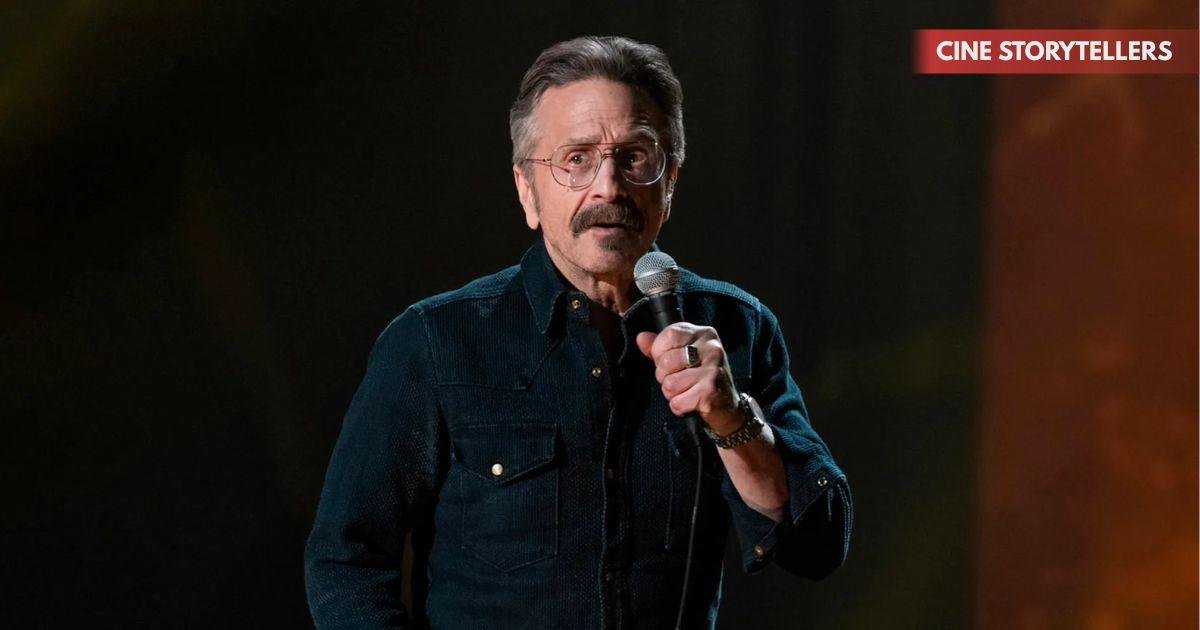Marc Maron, the acclaimed comedian and podcaster, has long been recognized for his thoughtful and introspective approach to comedy. Recently, in his HBO special Panicked, Maron openly critiqued the growing influence of what he calls the “Rogansphere”—a network of podcasts shaped by Joe Rogan’s casual, long-form interview style.
Maron’s criticism goes beyond the surface, addressing how this ecosystem has impacted comedy, cultural dialogue, and societal norms. With podcasting becoming a dominant form of media, his perspective raises questions about the responsibility of content creators in shaping public discourse.
The Rise of the “Rogansphere”
Joe Rogan’s The Joe Rogan Experience has become one of the most influential podcasts in history, with millions of listeners tuning in weekly. Rogan’s mix of casual conversation, controversial opinions, and celebrity interviews has created a model that many podcasters emulate.
The “Rogansphere” refers to this extended network of creators who adopt Rogan’s approach—long-form, conversational podcasts often featuring contentious topics. While this model has democratized content creation, Maron argues it has also contributed to a shift in comedic priorities.
Maron’s Concern: Comedy in Decline
Maron believes the Rogansphere has unintentionally led to a dumbing down of comedy. Where traditional stand-up often challenged audiences intellectually and socially, many Rogansphere-inspired podcasts focus on shock value and sensationalism.
Key points from Maron’s critique include:
- Prioritizing controversy over craft: Sensationalism often overshadows wit and nuanced humor.
- Reduction of complexity: Comedy that once explored societal and personal intricacies is replaced with simplified, crowd-pleasing material.
- Influence on emerging comedians: New voices may mimic the Rogansphere’s approach, potentially limiting innovation in the genre.
Cultural Implications: Anti-Woke Rhetoric and Normalization
Beyond comedy, Maron warns about the societal impact of anti-woke and divisive rhetoric circulating in popular podcasts. By framing controversial opinions as entertainment, these platforms can normalize extreme or harmful viewpoints.
This influence extends to listeners’ perceptions of culture, politics, and social norms. Maron’s critique highlights the need for creators to recognize the weight of their platforms and the messages they amplify.
Podcasting and the Evolution of Comedy
Podcasting has transformed comedy, offering unprecedented freedom for performers to express themselves without traditional media gatekeeping. This democratization has created opportunities for diverse voices and experimental formats.
However, it also presents challenges:
- Virality over substance: Podcasts often prioritize attention-grabbing content over thoughtful discussion.
- Audience reinforcement: Algorithms encourage echo chambers, where controversial viewpoints gain traction without counterbalance.
- Shift in comedic expectations: Audiences now expect humor to be immediate and sensational, sometimes at the cost of depth.
Maron’s critique is not an attack on podcasting itself but a caution against complacency in comedic standards and societal impact.
Marc Maron’s Advocacy: Thoughtful Comedy
Maron encourages comedians to embrace complexity and nuance. His approach emphasizes introspection, critical thinking, and social awareness. He believes comedy can be a vehicle for insight, empathy, and constructive dialogue.
Key elements of Maron’s philosophy include:
- Engagement over shock: Humor should challenge audiences intellectually, not merely provoke a reaction.
- Responsibility in messaging: Comedians should consider how jokes influence societal attitudes and perceptions.
- Depth in storytelling: Rich character work and personal narratives enrich comedy beyond punchlines.
By advocating for thoughtful comedy, Maron reinforces the importance of substance in the age of digital media saturation.
The Rogansphere vs. Traditional Comedy
The contrast between the Rogansphere and traditional comedy highlights the tension between entertainment and substance:
| Aspect | Rogansphere | Traditional Comedy (Maron’s Approach) |
|---|---|---|
| Focus | Sensationalism, controversy | Wit, insight, cultural critique |
| Audience | Broad, attention-driven | Thoughtful, engaged |
| Risk | Popularity-driven, simplified | Social commentary, challenging norms |
| Format | Long-form podcasts | Stand-up, interviews, specials |
Understanding these differences helps contextualize Maron’s concerns and his call for a balance between accessibility and meaningful content.
The Future of Comedy in Podcasting
As podcasting continues to grow, Maron’s critique serves as a reminder that comedians wield influence beyond laughter. Podcast platforms can either elevate discourse or reinforce divisive norms. The key to maintaining comedy’s vitality lies in:
- Prioritizing originality over imitation
- Balancing entertainment with responsibility
- Encouraging diverse perspectives without sacrificing depth
The evolution of comedy in the digital age will depend on creators’ willingness to uphold these principles.
Conclusion
Marc Maron’s critique of the Rogansphere highlights a critical moment in comedy’s evolution. As podcasting reshapes cultural discourse, comedians face both opportunities and responsibilities. By maintaining thoughtfulness, originality, and social awareness, creators can ensure that comedy remains a powerful and constructive force in society.
Also Read : Gods of Egypt on Netflix: Release Date, Cast, Plot, and How to Watch
FAQs
Q1: What is the “Rogansphere”?
A1: The “Rogansphere” refers to a network of podcasts influenced by Joe Rogan’s long-form, conversational style, often emphasizing sensationalism.
Q2: Why does Marc Maron criticize the Rogansphere?
A2: Maron believes it has contributed to a decline in comedic quality, promoting shock value over thoughtful humor and normalizing divisive rhetoric.
Q3: How has podcasting influenced comedy?
A3: Podcasting democratizes content creation, allowing diverse voices to reach audiences, but it also incentivizes virality and sensationalism.
Q4: What does Maron advocate for in comedy?
A4: He encourages thoughtful, nuanced comedy that engages audiences intellectually and socially, rather than relying on cheap or controversial humor.
Q5: Does Maron oppose podcasting entirely?
A5: No, he appreciates podcasting as a medium but urges creators to balance entertainment with responsibility and substance.
Q6: Who are some examples of Rogansphere comedians?
A6: While the term broadly applies to podcasts influenced by Joe Rogan’s style, other hosts like Theo Von or similar conversational comedians are often associated.
Join our WhatsApp channel for more updates and information about celebrities and entertainment

I’m Atul Kumar, founder of Cine Storytellers and an entertainment creator with 5+ years of experience. I cover films, celebrities, music, and OTT content with a focus on accurate, ethical, and engaging storytelling. My goal is to bring readers trustworthy entertainment news that informs, inspires, and goes beyond gossip.
Discover more from Cine Storytellers
Subscribe to get the latest posts sent to your email.
